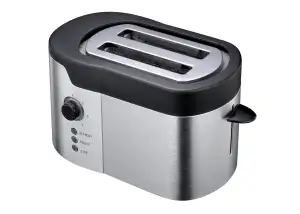Ensuring Freshness: How Long Can Eggs Safely Sit Out? Discover the Best Storage Practices for Home

Proper egg storage is crucial for maintaining their freshness and ensuring their safety for consumption. Eggs are a staple in many households, used in various recipes and enjoyed as a nutritious meal. However, if not stored correctly, eggs can spoil quickly and pose health risks. Understanding the best practices for egg storage is essential to preserve their quality and extend their shelf life. In this article, we will explore the factors that affect egg freshness, how long eggs can safely sit out at room temperature, the dangers of consuming expired eggs, safe storage options, and tips for extending the shelf life of eggs at home. By following these guidelines, you can ensure that your eggs remain fresh and safe to eat.
Understanding the shelf life of eggs
Understanding the shelf life of eggs is crucial for ensuring their freshness and safety. The shelf life of eggs refers to the period during which they can be stored and consumed without any quality or safety concerns. It is important to note that eggs have a limited shelf life due to their perishable nature. On average, eggs can be safely stored in the refrigerator for about 3-5 weeks from the date of purchase. However, it is essential to check the expiration date on the carton as this will provide a more accurate indication of their freshness. Additionally, it is recommended to use eggs within 2 weeks after their expiration date to ensure optimal quality and safety. Understanding the shelf life of eggs allows us to make informed decisions about their storage and consumption, ultimately ensuring that we enjoy fresh and safe eggs at home.
Factors affecting egg freshness
Factors affecting egg freshness include temperature, humidity, and handling. Eggs should be stored in a cool place, away from direct sunlight and heat sources. High temperatures can cause eggs to spoil more quickly. Humidity is also important as it can affect the protective coating on the shell. Rough handling can lead to cracks in the shell, allowing bacteria to enter and spoil the egg. It is essential to handle eggs with care and avoid dropping or shaking them excessively. By understanding these factors, you can ensure that your eggs stay fresh for longer periods of time.
How long can eggs sit out at room temperature?
How long can eggs sit out at room temperature? It is generally recommended to store eggs in the refrigerator to maintain their freshness and safety. However, many people wonder if it is safe to leave eggs out at room temperature for a short period of time. The answer depends on various factors such as the temperature of the room and how long the eggs have been sitting out. In general, eggs should not be left at room temperature for more than two hours. After this time, the risk of bacterial growth increases significantly, which can lead to foodborne illnesses. Therefore, it is best to err on the side of caution and refrigerate eggs promptly after use or purchase.
The danger of consuming expired eggs
Consuming expired eggs can pose serious health risks. As eggs age, they become more susceptible to bacterial contamination such as Salmonella. Consuming eggs that have gone bad can lead to food poisoning symptoms like nausea, vomiting, diarrhea, and abdominal pain. In severe cases, it can even result in hospitalization. It is crucial to always check the expiration date before consuming eggs and discard any that are past their prime. By doing so, you can protect yourself and your loved ones from potential health hazards.
Safe storage options for eggs
Safe storage options for eggs include refrigeration and proper packaging. It is recommended to store eggs in their original carton, as it provides protection from light and absorbs any moisture that may accumulate. Avoid storing eggs near strong-smelling foods, as they can absorb odors easily. Additionally, keep eggs away from the door of the refrigerator, as temperature fluctuations can affect their quality. If you have a surplus of eggs, they can be safely stored in the freezer. Simply crack them into a freezer-safe container, whisk them together lightly, and freeze for up to one year. Remember to label the container with the date to keep track of their freshness. By following these storage practices, you can ensure that your eggs remain fresh and safe for consumption.
Tips for extending the shelf life of eggs
To extend the shelf life of eggs and keep them fresh for longer, there are a few simple tips you can follow. First, store your eggs in the refrigerator at a temperature of around 40°F (4°C). This helps to slow down the growth of bacteria and keeps the eggs fresher for a longer period of time.
It's also important to store eggs in their original carton rather than transferring them to a different container. The carton provides protection from light and helps to maintain the quality of the eggs.
Avoid washing the eggs until you're ready to use them. The protective coating on the shell helps to keep out bacteria and moisture, so washing them prematurely can reduce their shelf life.
Another tip is to place older eggs towards the front of your refrigerator while keeping newer ones towards the back. This way, you will use up older eggs first and reduce the risk of consuming expired ones.
Lastly, avoid storing eggs near foods with strong odors as they can absorb these smells easily. Keep them away from onions, garlic, fish, or any other strongly scented items.
By following these simple tips, you can ensure that your eggs stay fresh for longer periods of time and reduce the risk of consuming expired or spoiled eggs.
Conclusion: Ensuring the freshness and safety of eggs at home is crucial for maintaining their quality and minimizing the risk of foodborne illnesses. By understanding the shelf life of eggs and the factors that affect their freshness, we can make informed decisions about storage practices. Remember, eggs should not be left out at room temperature for more than two hours to prevent bacterial growth. To extend their shelf life, store eggs in the refrigerator and avoid washing them until just before use. By following these simple guidelines, we can enjoy delicious and safe eggs in our meals.
Published: 13. 02. 2024
Category: Home



